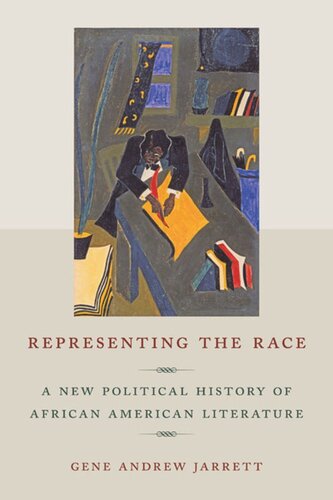

Most ebook files are in PDF format, so you can easily read them using various software such as Foxit Reader or directly on the Google Chrome browser.
Some ebook files are released by publishers in other formats such as .awz, .mobi, .epub, .fb2, etc. You may need to install specific software to read these formats on mobile/PC, such as Calibre.
Please read the tutorial at this link: https://ebookbell.com/faq
We offer FREE conversion to the popular formats you request; however, this may take some time. Therefore, right after payment, please email us, and we will try to provide the service as quickly as possible.
For some exceptional file formats or broken links (if any), please refrain from opening any disputes. Instead, email us first, and we will try to assist within a maximum of 6 hours.
EbookBell Team

4.3
58 reviewsThe political value of African American literature has long been a topic of great debate among American writers, both black and white, from Thomas Jefferson to Barack Obama. In his compelling new book, Representing the Race, Gene Andrew Jarrett traces the genealogy of this topic in order to develop an innovative political history of African American literature. Jarrett examines texts of every sort—pamphlets, autobiographies, cultural criticism, poems, short stories, and novels—to parse the myths of authenticity, popular culture, nationalism, and militancy that have come to define African American political activism in recent decades. He argues that unless we show the diverse and complex ways that African American literature has transformed society, political myths will continue to limit our understanding of this intellectual tradition.
Cultural forums ranging from the printing press, schools, and conventions, to parlors, railroad cars, and courtrooms provide the backdrop to this African American literary history, while the foreground is replete with compelling stories, from the debate over racial genius in early American history and the intellectual culture of racial politics after slavery, to the tension between copyright law and free speech in contemporary African American culture, to the political audacity of Barack Obama’s creative writing. Erudite yet accessible, Representing the Race is a bold explanation of what’s at stake in continuing to politicize African American literature in the new millennium.